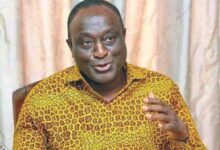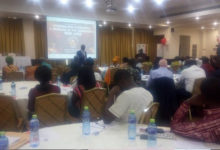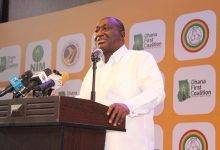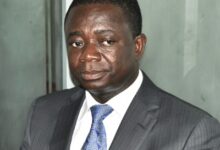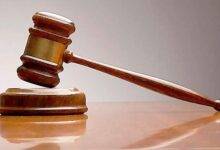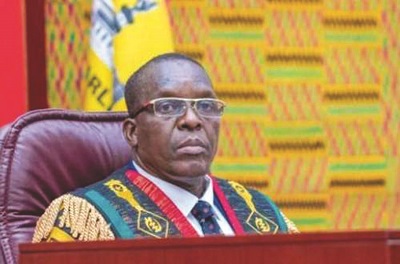
Ordinarily, Standing Order 90 conclusively answers this question thus:
“The Speaker shall not take part in any debate before the House”
But is that all and does Standing Order 90 provide all the answers? Considered as a stand-alone article that should be it. It is final that the Speaker should not take part in any debate before the House. But articles of the Standing Orders are not stand-alone articles. They are meant to be read and considered as a whole, holistically and in tandem with the 1992 Constitution. Moreover, precedents, traditions, conventions and powers vested in the Speaker by the Standing Orders might not, after all, make Order 90 absolute. If that is our understanding then the debate has not yet ended. The issue needs further clarification and explanation.
In 1998 I was privileged to have been invited by the National Democratic Institute (NDI) of USA as a Resource Person to organize an orientation course for the Liberia Legislature. The first thing I asked for when I got there were the Standing Orders of the Legislature. I was quite taken aback when I was told that there were no written standing orders.
According to them, the Speaker “was the Standing Orders” of the Legislature. The Speaker presided over the Legislature and as such he controlled the procedure, conduct and proceedings of the House.
This surprised me because in all democraciesLegislatures, that I knew, had written Standing Orders to guide, direct and regulate proceedings and procedure of the House. The absence of written Standing Orders in the Liberia Legislature compelled me to take a second look at the Standing Orders of Ghana’s Parliament. Read and considered holistically and in whole I realized that the Speaker of Ghana’s Parliament was in some, if not all, cases the personification of the Standing Orders. How could that be, you may ask? Just look at Standing Orders 5 and 6 and tell me what they mean or imply.
Order 5 reads “In case of doubt these Orders shall be interpreted by Mr. Speaker as he deems fit”
Order 6 reads “In all cases not provided in these Orders Mr. Speaker shall make provision as he deems fit”
These are enormous powers granted to the Speaker. Note that, in case of doubt, Mr. Speaker shall interpret and his interpretation is final? But in all cases not provided in the Standing Orders Mr. Speaker shall make provision as he deems fit. If Mr. Speaker can interpret the Standing Orders and his interpretation is final and if Mr. Speaker can make provision for cases not provided in the Standing Orders, as he deems fit, then his influence over the House is unambiguously clear, especially when the Orders do not define whose “doubt” and have even gone further to give the Speaker powers to interpret the Orders and make provisions “as he deems fit”
The “hung” or “stalemate” Parliament of the 8th Parliament of the 4th Republic exposed the weaknesses and the shortcomings of the Standing Orders of the Ghana’s Parliament. If it were the Liberia Legislature of 1998 there would not have been any problems because the Standing Orders were in the bosom of the Speaker and all that he had to do was to adjust his mood, position and views to suit the new parliamentary situation or culture.
Ghana’s situation is different because it has written Standing Orders but the Speaker is given powers of interpretation. For the strange 8th Parliament of the 4th Republic to function properly and efficiently the standing orders should have been amended or even re-written.
The problemGhana’s Parliament has is that it is using unsuitable, moribund Standing Orders to run a remarkably different type of parliament. For instance, in a House made up of equal numbers, 137/137, a majority and minority groups have been declared. How was that determined? There are majority and minority leaders in the House. That is queer.
To me, the leader of the party in power could have been designated “Leader of Government Business” and not Majority Leader; a title he is not entitled to or deserves. A decision taken by the House when Mr. Speaker presided was overturned by his Deputy. A Deputy Speaker presiding as Speaker could abandon the Speaker’sseat to go and constitute a quorum of the House or vote on a motion he has admitted for debate.
In a House of equal numbers, 137/137, almost all Parliamentary Committees are chaired by the party in government. How? The Second Deputy Speaker who should not come from the same party as the First Deputy Speaker has been allowed to join and work with the First Deputy Speaker’s party and no action is taken against him.
Because of the stalemate in the House soldiers could be deployed to Parliament without the consent of the Speaker or the Clerk to Parliament. Mr. Speaker admits a motion and it is debated. Instead of putting the question for decision to be taken by the House he decides to rule on it; yes, rule on it. That was unprecedented! The Leader of Government Business in Parliament (wrongly designated Majority Leader) will get up and openly chastise, deride and vilify Mr. Speaker on the Floor and get off scot-free. This unfortunate behavior is repeated in public and the media.
Is it a show of impunity and disrespect for the Speaker? What is happening to Ghana’s Parliament? Clearly, I put this down, partly, to the absence of a well structured, suitable and appropriate Standing Order to guide, direct and regulate the affairs and conduct of Parliament. Is the Speaker presiding over chaos?
There seems to be a lot of confusion in Parliament! The source of the confusion is clear. The House has no appropriate, suitable and workable Standing Orders to guide it and regulate its procedures and activities. So actions and decisions are taken in a bizarre and unconventional manner.
The prevailing confusion would have been averted if the House has been patient and proactive to amend or rewrite its Standing Orders first before beginning any serious work. Despite the moribund nature of the Standing Orders, some honourable members have made it their business to accuse the Speaker of taking part in debates of the House.
But is the Speaker totally barred from taking part in debates before the House? The argument is that he is not an MP so he cannot take part in debates. But it is the same Standing Orders which have given him the controlling powers to comment and re-direct debates in the House. Mr. Speaker can use the intervention powers vested in him to “take part in debates before the House,” at least indirectly.
He admits motions for debate. What about if he refuses to admit them, and he does that occasionally? There will be no debate at all, let alone, allowing the Speaker to take part in it.
Mr. Speaker can intervene to guide, comment, re-direct and regulate debates on the Floor of the House and yet he is not an MP. He can recognize a member to take or not to take part in a debate. In other words, Mr. Speaker controls and influences the direction of debates in the House. He is the only person who enjoys this authority and power in the House.
If the Speaker corrects or draws the attention of an MP to wrong and unparliamentary debating procedure do we take that as the Speaker taking part in a debate? Semantics apart, can we admit the fact that the authority vested in the Speaker to intervene in debates is more important than just taking part in debates?
Taking part in a debate is a right exercised by honourable MPs but this right is exercised at the discretion and instance of the Speaker who is not an MP. If an MP catches the eye of the Speaker, the Speaker may allow him to speak. An MP can stand up many times but if he does not catch the Speaker’s eye there is no way he can contribute to the debate. But the Speaker in the name of guiding and correcting an MP can make substantial contribution to the debate before the House.
It is obvious that the influence exercised over debates by Mr. Speaker is far greater than that of the MP’s right to debate. Mr. Speaker determines the trend and direction of debates in the House. Nobody should fool himself or be naïve to think that, in practical terms, Mr. Speaker does not take part in debates of the House. He does, directly or indirectly.
In the 4th Republican Parliaments, Speakers have used their intervention and guiding powers many times to take part in debates, in fact, to the extent that, sometimes, they contribute more than the MP.
Rt. Hon. Justice Annan did it and Rt. Hon. Peter Ala Adjetey did it even more. I had the unpleasant personal experience of debating Rt. Hon. Peter Adjetey on the Floor. For many minutes we were locked up in a debate with each other on the Floor(See Hansard 13th February 2004, columns 1230-1245). There seemed to be no end to our debate but in the end the Speaker had the final say. He “ordered” me to “sit down,” and I did. It is a juicy precedent and tradition, too tempting, for other Speakers not to follow. Who says Speakers do not have a way of taking part in debates before the House? They do, and who can stop them? Worse of all, by the powers vested in them by the Standing Orders, they can adjourn, stifle and truncate a debate! If in doubt you can check the Hansard.
The writer is a former MP for Hohoe South
BY KOSI KEDEM

